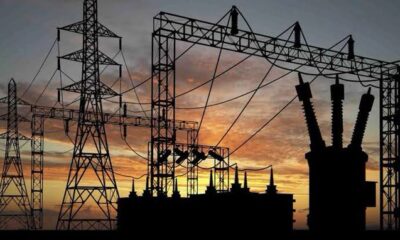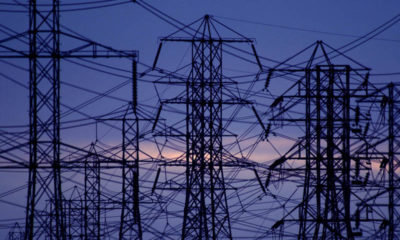The Senate Committee on Local Content has said the $5.792 billion Mambila Hydro-Electric Power Project is set for take-off following the successful resolution of financial and legal hurdles that delayed the project.
Its Chairman, Senator Teslim Folarin, gave this indication yesterday in Abuja while receiving the report of the finance sub-committee of the project.
He said the contractors handling the project are expected to commence work at the site before the end of 2021.
According to Folarin, the subcommittee was an off-shoot of the Technical Working Group on Mambila Hydro-Electric Power Local Content inaugurated in June, last yaer.
“The Federal Executive Council on 30th August, 2017, approved the contract on the Mambila Hydro Electric Power Project in the sum of $5.792billion for the construction of 3050MW.
“The project was awarded to Chinese contractors JV (CGGC-SHC-CGCC), with the site in Gembu, Taraba State,” Folarin said.
He noted that the challenges that arose in the course of the execution of the project, made the Presidential Committee on Northeast Development now the Northeast Development Commission (NEDC) to review the initial plan of the Technical Working Group.
He said the NEDC came up with a working document, wherein the work of the TWG was reshaped and streamlined for effective and seamless implementation of the project.
Folarin added: “Thereafter, the reviewed report was forwarded to the National Assembly for further legislative action.”
“Consequently, the National Assembly along with the Technical Working Group, constituted the Finance Sub-Committee under the Chairmanship of the Executive Director, NEXIM (Nigerian Export and Import) Bank.
“The Sub-Committee was inaugurated earlier this year by the Senate Committee on Local Content and it was mandated to report back to the Committee within six weeks.”
The Senator said the subcommittee was mandated to work out modalities that would facilitate the financial requirement of the local content aspect of the project, which was estimated at N1.7billion representing 30 per cent of the approved contract of $5.7billion.
He said, “The Nigerian Export and Import Bank was mandated to play the lead role in the sub-committee, while the Nigeria Sovereign Investment Authority was to serve as the secretariat of the panel.
“I have no doubt in my mind that all these issues, among others, are succinctly addressed in the report and I believe that at the end, we shall have a document that will provide a way forward on the project.”
Folarin told reporters after the session that the major legal encumbrance which had made it almost impossible for the legacy project to take off, had been resolved.
He said, “We have made some progress and breakthroughs, but we are yet to forward the report to the leadership of the Senate.
“The Federal Government was mandated to pay to the contractors – Sunrise – the sum of $200million and if we don’t pay within a stipulated time, then we have accrued interest.
“As far as the contractors are concerned, they said their money is now $400million because of the accumulated interests.
“The project was officially awarded by the Federal Executive Council on August 30, 2017, and it has been signed as a contract between the Nigerian Government, Ministry of Power and the Chinese Joint Venture of CGGC.”
On her part, the liaison officer and administrator for Hypertech, the consultant to Federal Government and Chinese Government on the Mambila project, Mrs Maimuna Muhammed, said all litigations have been effectively resolved.
Mrs Muhammed said, “We have a breakthrough concerning all the litigations about the project. All the delays we had before everything has been sorted out.
“Now we are ready to kick start the project. The next programmes we are going to have is the Business Roundtable, after that we will move to site, in Taraba State.”
The Consultant to the Senate President on Mambilla HEPP Local Content, Muhammad Mustapha, said membership of the committee also consists of the technical committee which was chaired by ministry of power and co-chaired by ministry of water resources.
He said the human capital development committee that was chaired by the Petroleum Technology Development Fund co-chaired by the energy council, was also involved.”
Muhammad added that part of the challenges that had caused significant delay over time had been the legal encumbrance.
He said, “We will like to mention that in qualifying the efforts of this committee as local content, we have been able to identify the legal aspect of the project to be a local content concern.
“The pre-commencement activity has already been approved two years before now.
“Part of the effort of the finance sub-committee is to articulate the local content aspect of the project as a whole and the pre- commencement activity in specifics.
“This activity stands at four major areas: the security of the site, access road to open up the site, the resettlement plan of over 140,000 people and air field for logistic base.
“We call on the implementation committee to work assiduously to meet the six week timeline as the project is building a new political momentum toward implementation.”

 Naira4 weeks ago
Naira4 weeks ago


 News3 weeks ago
News3 weeks ago
 Education4 weeks ago
Education4 weeks ago


 Social Media4 weeks ago
Social Media4 weeks ago
 Technology4 weeks ago
Technology4 weeks ago
 Investment4 weeks ago
Investment4 weeks ago


 Dividends4 weeks ago
Dividends4 weeks ago
 Economy4 weeks ago
Economy4 weeks ago

















